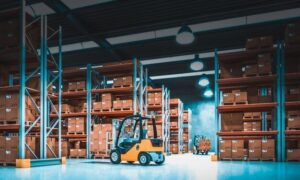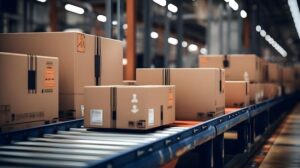When businesses trade with other businesses, fast and reliable logistics become a critical part of the supply chain. This is where B2B logistics comes in — a system designed to handle bulk shipments, scheduled deliveries, warehouse operations, and long-term supply chain partnerships. Unlike B2C (business-to-consumer) shipping, B2B logistics requires higher accuracy, consistency, and efficiency to keep operations running smoothly.
In this guide, you’ll learn what B2B logistics is, how it works, the key challenges businesses face, and why it’s becoming more important than ever in Malaysia’s fast-growing digital economy.
Contents
What Is B2B Logistics?
B2B logistics (Business-to-Business logistics) refers to the movement, storage, and management of goods between businesses. This includes manufacturers sending products to wholesalers, suppliers shipping inventory to retailers, or factories receiving raw materials from distributors.
B2B logistics typically involves:
Bulk shipments
Scheduled or recurring deliveries
Larger packaging and palletised goods
Stricter documentation
Clear delivery timelines
Long-term business agreements
The focus is on consistency and efficiency — because one delay can disrupt an entire supply chain.
How B2B Logistics Works
1. Procurement & Order Management
Procurement begins when a business sources and purchases goods from suppliers to meet production or inventory needs. These transactions are supported by essential documents such as contracts, purchase orders (POs), and supply agreements to ensure accuracy and transparency. Effective order management helps prevent shortages, delays, and miscommunication between business partners.
2. Storage & Warehousing
Once goods arrive, they are stored in warehouses where inventory is systematically organised and monitored. Warehouse teams handle stock rotation, maintain product quality, and ensure items are stored under the correct conditions. Proper warehousing management helps businesses avoid spoilage, overstocking, and unnecessary operational costs.
3. Transportation & Delivery
Transportation involves moving goods from warehouses to distributors, retailers, or other business destinations. B2B shipments often use trucks, container lorries, or freight services depending on quantity, distance, and urgency. Many companies rely on scheduled delivery routes to optimise fuel usage and reduce logistics costs.
4. Fulfilment & Last-Mile Delivery
During fulfilment, businesses pick, pack, and label items accurately according to the buyer’s requirements. Last-mile delivery focuses on transporting these prepared goods to their final destinations such as stores, distribution hubs, or business clients. Precision is essential because incorrect deliveries or missing items can disrupt the buyer’s operations.
5. Returns & Reverse Logistics
Reverse logistics handles the process of returning damaged, defective, or excess goods from buyers back to the supplier or manufacturer. These items may be repaired, replaced, recycled, or restocked depending on their condition. A smooth returns process helps maintain business relationships and minimises financial losses.
Why B2B Logistics Is Important in 2025
B2B logistics is crucial in 2025 because it ensures smooth supply chain operations, reduces costs, and supports high-volume business growth. Efficient logistics help businesses deliver products on time, manage inventory accurately, and strengthen relationships with partners.
Ensures Smooth Supply Chain Operations
Businesses depend on consistent deliveries — even small delays can stop production lines or cause stockouts.
Supports High-Volume Business Growth
B2B logistics allows companies to scale by handling bulk orders reliably and cost-effectively.
Improves Efficiency & Reduces Costs
Bulk shipping and scheduled routes help businesses save on transportation costs.
Enables Better Inventory Planning
With predictable deliveries, businesses can manage stock more accurately and reduce overstock or shortages.
Strengthens Business Relationships
Reliable logistics improve trust between suppliers, manufacturers, and retailers.
Common Challenges in B2B Logistics
1. Delivery Delays
Delivery delays are one of the most common challenges in B2B logistics. Factors like traffic congestion, bad weather, or warehouse bottlenecks can slow down shipments, affecting production timelines and order fulfilment. Consistent delays can harm business reputation and disrupt supply chain operations.
2. Inaccurate Inventory Tracking
Inaccurate inventory tracking occurs when stock records do not match the actual quantity or condition of goods. Mistakes in stock levels, misplaced items, or unrecorded shipments can disrupt production schedules and delay customer orders. Maintaining accurate inventory is critical for smooth supply chain management.
3. High Transportation Costs
High transportation costs are a major concern for businesses handling bulk shipments. Expenses can rise due to fuel price fluctuations, long-distance routes, or heavy/oversized loads. Efficient route planning and proper packaging can help reduce these costs while ensuring timely delivery.
4. Complex Documentation
Complex documentation adds administrative burden to B2B logistics. Businesses must handle purchase orders, invoices, customs forms, and compliance records accurately to avoid penalties or shipment delays. Streamlining documentation processes is essential to reduce errors and save time.
5. Coordination Between Multiple Parties
Effective coordination between suppliers, manufacturers, distributors, and transporters is crucial for smooth logistics. A single miscommunication or delayed update can trigger a chain reaction, causing shipment delays or stock shortages. Clear communication channels and real-time tracking systems help maintain seamless collaboration across the supply chain.
How Businesses Can Improve Their B2B Logistics
To improve B2B logistics, businesses need to focus on efficiency, accuracy, and reliability at every stage of the supply chain. Implementing the right strategies can reduce costs, prevent delays, and strengthen relationships with suppliers and customers.
Use Technology & Automation
Inventory software, order management systems, and automated tracking reduce errors.
Choose Reliable Logistics Partners
A dependable courier or freight company can make a huge difference in delivery consistency.
Optimise Packaging & Palletising
Efficient packaging lowers transportation cost and prevents damage.
Plan Delivery Schedules Strategically
Scheduled, recurring shipments help reduce delays and improve cost-efficiency.
Monitor Performance & KPIs
Track delivery times, accuracy rates, and inventory turnover to identify weak points.
How to Ship Items with EasyParcel
- Step 1
- Step 2
- Step 3

- Place the items in the small box.
- Wrap with bubble wrap so it doesn’t get scratched.
- If it’s a branded item, keep the original box inside.
- Seal the package with strong tape and fragile adhesive.
 Check the weight with a scale
Check the weight with a scale- Measure the length, width and height

- Log in to your EasyParcel account.
- Enter the pickup and delivery address.
- Enter the weight and size of the package.
- Choose your courier service (J&T, DHL, Pos Laju).
- Add insurance if the item is expensive.
B2B logistics plays a massive role in helping businesses operate efficiently, reduce costs, and deliver products to partners on time. As industries in Malaysia grow more digitised in 2025, having a strong and well-managed logistics system is no longer optional — it’s essential.
With EasyParcel, you can make delivery simple, affordable, and efficient — helping your business grow smoothly. EasyParcel welcomes you with a FREE RM10 credit for your first shipment. Sign up today and start shipping smarter with EasyParcel!
FAQ: B2B Logistics
1. What is B2B logistics?
B2B logistics (Business-to-Business logistics) refers to the movement, storage, and management of goods between businesses, such as manufacturers, wholesalers, and retailers. It focuses on bulk shipments, scheduled deliveries, and maintaining efficient supply chain operations.
2. How is B2B logistics different from B2C logistics?
Unlike B2C (Business-to-Consumer), B2B logistics deals with larger quantities, recurring shipments, and stricter documentation. Accuracy, reliability, and timing are more critical because delays can disrupt entire business operations.
3. Why is B2B logistics important in 2025?
Efficient B2B logistics ensures smooth supply chains, reduces transportation costs, supports high-volume business growth, and strengthens relationships between suppliers and partners. It is crucial for Malaysia’s growing digital and manufacturing sectors.
 Singapore
Singapore Thailand
Thailand Indonesia
Indonesia
















